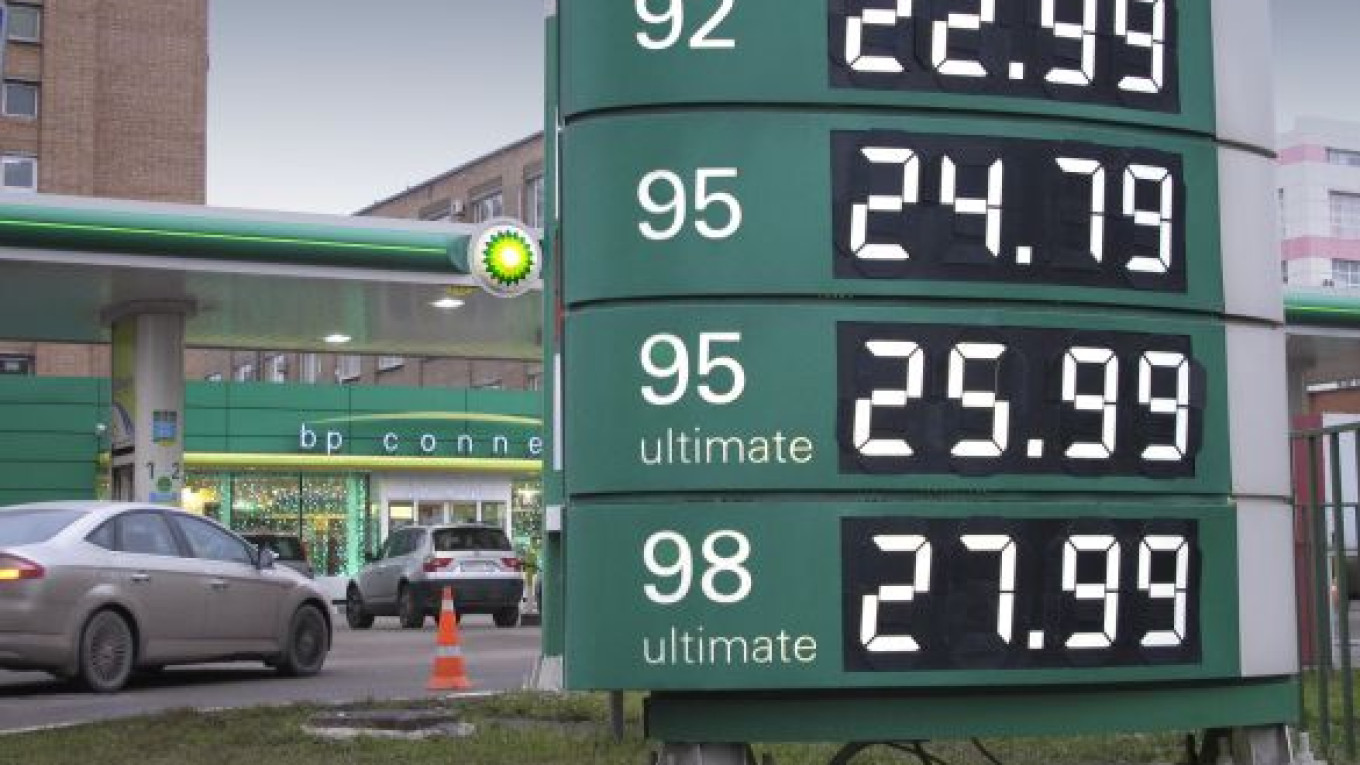Russia expects tough talks with Bulgaria next week over the proposed Burgas–Alexandroupolis oil pipeline, as Sofia is reviewing its energy deals with Moscow, Energy Minister Sergei Shmatko said Wednesday.
“I think we will have problems,” Shmatko said about the pipeline’s prospects, answering a question from a lawmaker in the State Duma.
Bulgaria is not only pressing for more environmental precautions, but also is critical of its potential profits from the project, he said. The government of recently elected Bulgarian Prime Minister Boyko Borissov believes that the current plan to simply gain dividends from the pipeline operation is not attractive enough, Shmatko said.
Shmatko, responding to a question from The Moscow Times, said he did not know the details of Bulgaria’s proposals to change the commercial terms of the deal but that he would discuss them at an upcoming meeting with Bulgarian officials.
Shmatko is heading to Sofia next week for talks on the $1 billion pipeline and Russia’s two other energy projects in the country: the construction of a nuclear power station and a stretch of the South Stream natural gas pipeline. Talks on the South Stream continue on the corporate level while details about the nuclear power plant require clarification, but these deals carry little risk of falling through, he said. Bulgaria’s Foreign Ministry didn’t respond to a request for comment Wednesday.
Boyko, after his election in summer, said he would revise the energy deals with Russia, casting doubt on their future. Prime Minister Vladimir Putin asked Boyko to make final decisions as soon as possible when the two met in September.
Martin Dimitrov, chairman of the Bulgarian parliamentary committee on the economy and energy, said an expected annual profit of $30 million from the oil pipeline would be ridiculously small compared with the risks for the environment and tourism, Business Week reported last week.
The Burgas-Alexandroupolis pipeline is a joint Russian, Greek and Bulgarian project to pump Russian and Caspian oil from the Bulgarian Black Sea port of Burgas to the Greek Aegean port of Alexandroupolis, which would create an alternative to tanker shipments through Turkey’s crowded Bosporus Straits.
Once completed, the pipeline will carry 35 million metric tons of oil a year, a volume that could eventually be increased to 50 million metric tons. Under an intergovernmental agreement signed in 2007 after seven years of talks, Russia holds 51 percent in the project company, while Greece and Bulgaria hold 24.5 percent each.
Shmatko was in the Duma to report on oil refining, saying Russia raised its production of refined oil products by 20 percent since 2004 but that their quality was very low. The poor quality brought down their price on foreign markets to that of Russian crude, he said.
Considering the difference in export duties, the federal budget could annually collect $15 billion more if oil companies exported crude instead of poorly refined products, he said.
The quality will start improving soon because oil companies are planning massive investment of at least 1.2 trillion rubles ($41 billion) to upgrade their refineries by 2015 in order to comply with new federal standards enacted last year, Shmatko said. The standards will begin applying in 2011, gradually raising the level of quality through 2015.
A Message from The Moscow Times:
Dear readers,
We are facing unprecedented challenges. Russia's Prosecutor General's Office has designated The Moscow Times as an "undesirable" organization, criminalizing our work and putting our staff at risk of prosecution. This follows our earlier unjust labeling as a "foreign agent."
These actions are direct attempts to silence independent journalism in Russia. The authorities claim our work "discredits the decisions of the Russian leadership." We see things differently: we strive to provide accurate, unbiased reporting on Russia.
We, the journalists of The Moscow Times, refuse to be silenced. But to continue our work, we need your help.
Your support, no matter how small, makes a world of difference. If you can, please support us monthly starting from just $2. It's quick to set up, and every contribution makes a significant impact.
By supporting The Moscow Times, you're defending open, independent journalism in the face of repression. Thank you for standing with us.
Remind me later.


